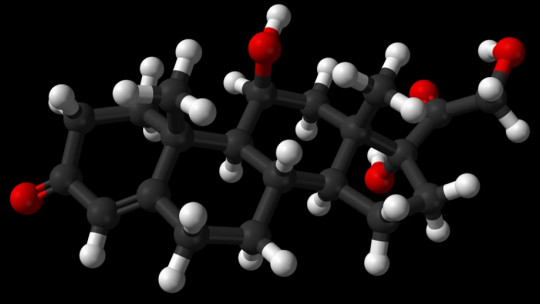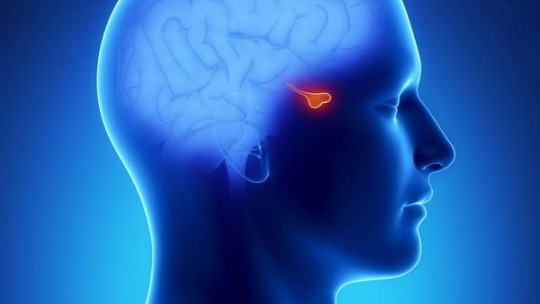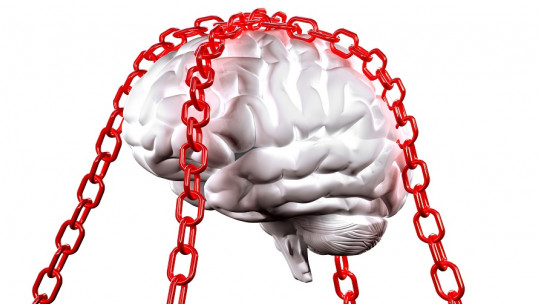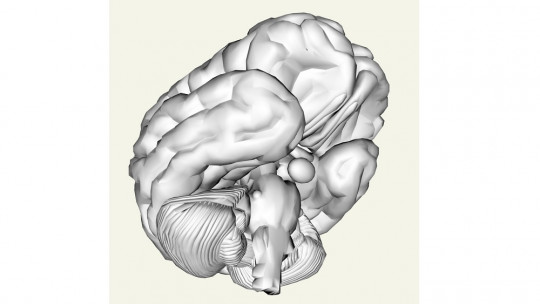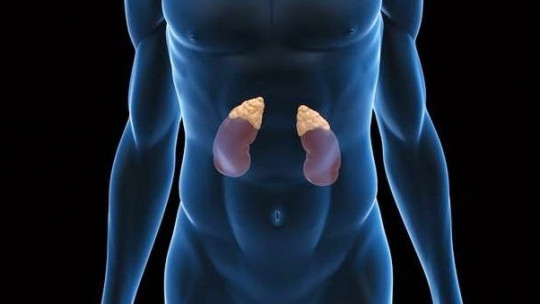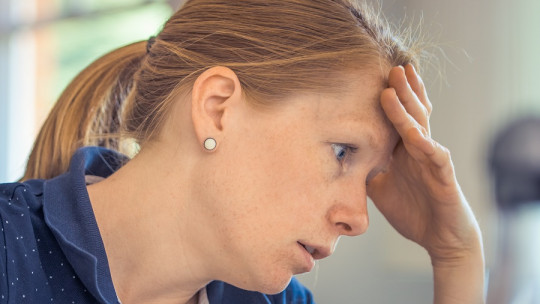
Throughout the day our levels of the hormone cortisol are different, with two times when there is an increase: at night and shortly after waking up.
The cortisol response upon awakening It is a phenomenon that occurs shortly before an hour has passed since we have gotten up and that seems to be related to stress and the ability to cope with the demands of daily life.
Below we are going to look in more depth at what this phenomenon consists of, what its neurological correlates are, what factors seem to influence its intensity and what health problems seem to have a link with a cortisol response to irregular awakening.
What is the cortisol response upon awakening?
Throughout the day, people have different levels of cortisol. There are two times when this hormone is increased: at night, and in the morning, shortly after waking up. The cortisol response upon awakening is a neurophysiological phenomenon that occurs during the first hour after waking up It consists of an increase between 38% and 75% in the hormone cortisol, normally after about 30 or 45 minutes after waking up in the morning.
Because the hormone involved in this phenomenon is closely related to stress, it has been suggested that the main function of this phenomenon could be to activate us to cope with the demands of everyday life. Also, it is believed that there are several factors that influence the appearance of this phenomenon, including the time we wake up, environmental factors such as lighting, and also experiencing stress throughout the day, associated with injury or illness.
How does it seem?
When we wake up and after a few minutes, people experience an increase in the hormone cortisol. The percentage of this hormone in the blood increases between 38% and 75%, with an increase of 50% being normal This is easily verifiable by analyzing the saliva of a person, in whom the average level of salivary cortisol is 15 nmol/l as soon as they wake up but, after about 30 or 45 minutes, it has increased, reaching 23 nmol/l, Although, naturally, there are people who have larger increases and others who have milder or even minuscule increases.
The cortisol response upon awakening reaches its maximum peak after 45 minutes after waking up, remaining increasing by about 35% during the following hour. This response pattern is relatively stable in all people, as long as there is no pathology or sociocultural factors that induce high tension.
Furthermore, it has been seen that it has a strong genetic factor, with studies with monozygotic twins finding a heritability value close to 0.40.
But although it represents a large increase in this hormone, the cortisol response upon waking is not the greatest that occurs throughout the day. The moment in which there is a greater secretion of cortisol occurs during the second half of the night while we are sleeping
This phenomenon, associated with circadian cycles, can occur very few hours before the cortisol response upon awakening, as long as the person gets up early, between 6 am and 9 am.
You have to understand that the increase in nocturnal cortisol and that associated with waking up are independent of each other, even though the same hormone is involved. After both increases have occurred, cortisol levels decrease throughout the day, reaching the lowest point during the first half of the night, just before the nocturnal increase in this hormone.
Neurological mechanisms
Cortisol is a hormone that is released in the adrenal glands after activation of the pituitary gland by adrenocorticotropic hormone (ACTH). The release of ACTH induces the cortisol response upon awakening, which triggers the production of glucocorticoids
It has been seen that ACTH is a hormone that is inhibited by the presence of dexamethasone, a synthetic glucocorticoid, which explains why it stops being secreted after the increase in cortisol and the release of glucocorticoids.
The release of ACTH It is regulated by the hypothalamus in the hypothalamic-pituitary-adrenal axis The hypothalamus releases hypophysiotropic hormone, a hormone that causes the release of corticotropin, whose production is subject to the influence of the circadian day/night cycle.
However, the cortisol response upon awakening is controlled by the hippocampus in the hypothalamic-pituitary-adrenal axis. This has been verified in people who have a damaged hippocampus, whether due to unilateral or bilateral injury or atrophy, presenting low levels of cortisol shortly after waking up or, directly, without any increase. Instead, People with a larger than normal hippocampus have a greater cortisol response upon awakening
Variables and influencing factors
There are several factors that influence the cortisol response upon awakening. These factors can either increase levels of the hormone cortisol or significantly reduce them, apparently influencing the ability to cope with the demands of daily life.
Environmental/behavioral
The cortisol response upon awakening is a phenomenon that occurs solely and directly to the fact of waking up. However, The time we wake up seems to influence the increase in the hormone in the blood being that the sooner we wake up, the greater the increase will be, as long as it is done in the morning and after the nocturnal increase in cortisol has occurred.
An example of how the time we wake up influences this is in the case of healthcare personnel, who due to their type of work have irregular work shifts and must work shifts. In one study, it was found that nurses who had to wake up between 4 am and 5:30 am had higher levels of the hormone cortisol when they woke up than those who had to wake up at 6 am or 9 am. Those who had to wake up at 11 am am – 2 pm had very low levels.
It has been seen that lighting at the time of waking up influences the response People who wake up in a bright room, such as the entrance of the first rays of the sun, have a greater increase in the cortisol response than those people who wake up in total darkness. On the other hand, waking up with the alarm clock or spontaneously does not influence the increase in morning cortisol.
Another factor that influences the increase in cortisol is found in naps It has been seen that taking a nap of one or two hours during the early hours of the afternoon (6.45 pm – 8.30 pm) does not induce the cortisol response upon waking up, seeing that this phenomenon can only occur after having slept at night.
Individuals
Being a day or night person influences this response. Diurnal people, that is, those who are more active during the first hours of the day, have a greater cortisol response upon waking up than nocturnal ones, which would explain why these types of people tend to be more productive during daylight hours.
People who have some type of illness or injury that causes them a lot of pain may have their cortisol levels affected and, consequently, the cortisol response upon waking up. Based on some research, the more pain the patient suffers, the more reduced the cortisol response upon awakening will be.
Another very interesting aspect is the socioeconomic aspect. It has been seen that people who have a lower socioeconomic status have a greater cortisol response upon waking This can be directly explained by the fact that people who have low income and more social problems live more stressed, having to work harder to make ends meet and at the same time being more sensitive to suffering from psychopathology.
Possible function
Much research has linked the cortisol response upon awakening to chronic stress, leading to the suggestion that it has the specific function of preparing the body to cope with everyday demands.
Although this is still an uncertain belief, it is believed that an increase in cortisol in the morning It would be related to greater activation and availability of resources to be able to satisfy day-to-day demands The availability of glucocorticoids associated with this phenomenon allows us to have energy to do tasks throughout the day.
The more tasks you have to do, the more cortisol is secreted shortly after waking up. A person who knows that he has a lot to do begins to feel cognitive concern about the tasks that he has to do, that is, he anticipates the stress that will keep him awake while he carries out the activity that he must complete. Thus, anticipatory stress is a strong cognitive and internal stressor that increases the cortisol associated with the cortisol response upon awakening.
In short, the cortisol response upon waking has adaptive functionality, providing the individual with the energy necessary to meet anticipated demands what you have to do throughout the day. The more tasks we have to do, the more cortisol will be released after we get up and, consequently, the more prepared we will be to carry out our daily tasks.
Problems related to this phenomenon
In several studies, a relationship has been found between having a cortisol response to irregular awakening and presenting health problems. As we have mentioned, there are several factors that mediate blood cortisol levels and, therefore, how the cortisol response occurs when waking up, with both environmental and internal or personal factors.
Regardless of what alters the levels of this hormone, we can talk about several pathologies associated with both high and low levels of cortisol.
High awakening cortisol responses have been found in multiple sclerosis, respiratory problems, visceral obesity, and, in women, metabolic syndrome In addition, having high cortisol upon awakening appears to be related to an increased risk for peritraumatic dissociation and acute stress disorder, along with the possibility of depression. Low levels occur in problems such as type 2 diabetes mellitus, chronic fatigue syndrome, systemic hypertension and functional digestive disorder.

